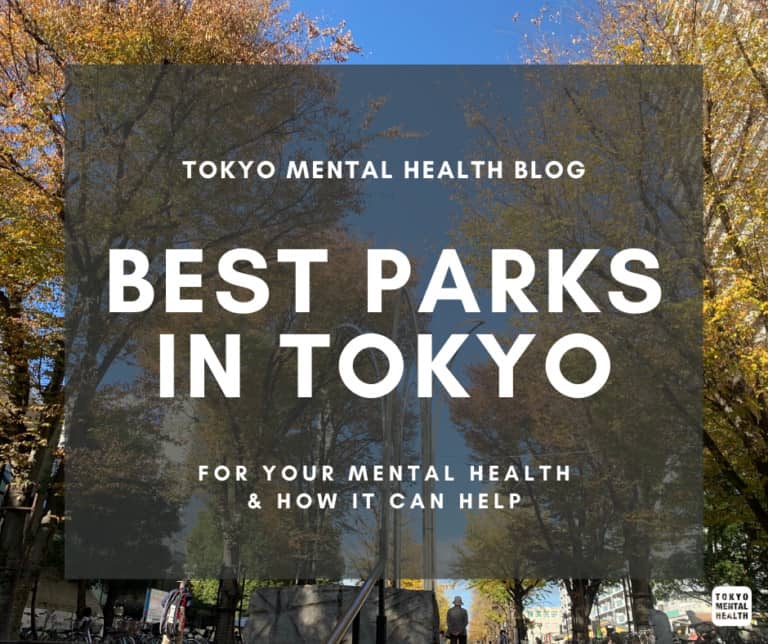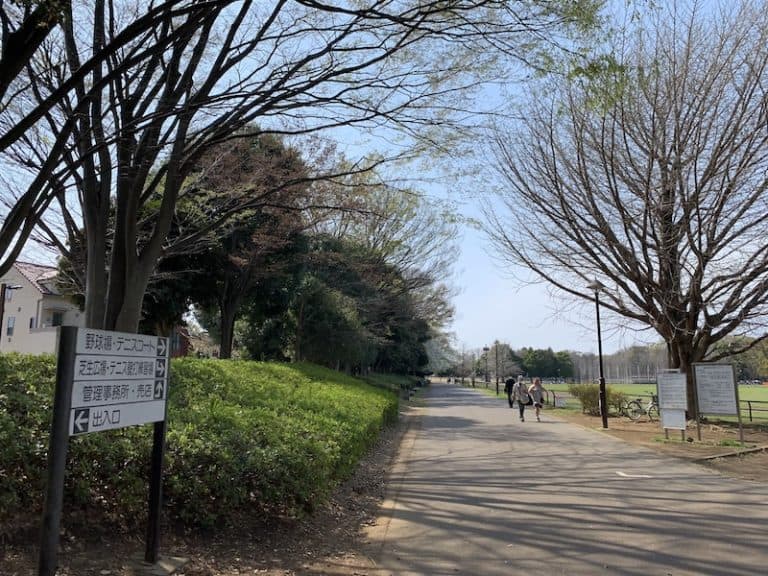- 2021/10/27
- Expat Resources

During COVID-19, parks in cities like Tokyo are more important than ever, providing people with a safe environment to exercise, socialize, and take breaks from small living spaces. Research has linked access to urban parks with a reduction in stress, depression, and mental/emotional fatigue among all ages of people. Though not as famous as Ueno or Yoyogi, the hundreds of smaller and less crowded local parks throughout Tokyo offer important benefits for both your physical and mental health.
How Tokyo's Parks are Mental Health Resources
You don’t have to be a nature lover to feel the benefits of spending time in green spaces. Parks offer a wide range of mental and physical benefits to those who visit and live near them, including:
- Increasing opportunities to exercise, which can benefit physical health and prevent disease.
- Providing a COVID-safe place to meet friends and family, reducing social isolation caused by the pandemic.
- Disrupting negative thought patterns. Research indicates that a 45-90 minute excursion in a green space can help disrupt negative thought patterns that contribute to depression.
- Preventing and reducing mental fatigue. Living, commuting, and working in a large city often requires high-levels of concentration, vigilance, and composure that can result in mental fatigue. Urban parks offer our minds a less overwhelming place to recuperate, where less of our focus and mental attention is necessary.
- Providing a place to develop new hobbies, including playing sports, drawing, playing an instrument, birding, wildflower hunting, or meditating.
- Supplying relief from harsh temperatures. Trees in parks provide shade that can reduce surface temperatures in urban areas during the summer months. This can provide a crucial break from the city’s “heat island effect” that impacts the physical and mental health of those who spend large amounts of time outdoors.
Try Out Your Local and Regional Parks
There are hundreds of parks throughout Tokyo, and many of them offer important resources like sporting facilities, libraries, museums, and trails. While Tokyo offers several famous parks that also double as tourist attractions, many of the best parks in Tokyo for rest and relaxation may be found in your own neighborhood. Local and regional parks often have fewer people, and have plenty of quiet spaces to alleviate mental fatigue. If you need a place to start, try one of these four parks:
Hikarigaoka Park – Nerima
This quiet, spacious park in a residential area is home to a bird sanctuary open to visitors on the weekends. It features several paths off to the side of the main paved walkways that make it easy to find moments of solitude.
The Institute for Nature Study – Minato
Located near Meguro Station, the Institute for Nature Study is a quiet research station and small urban forest. No more than 300 people are allowed in at once, and there are plenty of trails, ponds, trees, and birds to enjoy.
Wakasu Seaside Park – Koto
For some, “blue space” near water can be just as calming a resource as an urban green space. This park offers plenty of places to sit and relax near Tokyo Bay. People often come here for fishing, biking, camping, or to play at the nearby golf course.
Shakujii Park – Nerima
A calm and spacious park with two ponds where local families go to relax and spend time together, part of Shakuji Park is also preserved as a nature area. It is located in a quiet neighborhood that is excellent for a peaceful afternoon outing.
If you have a disability and are concerned about accessibility, visit the website Accessible Japan, which has compiled accessibility information for several major attractions and parks in Tokyo. The site includes information about the location of nearby elevators, accessible restrooms, and the condition of pavement and sidewalks that may be useful to those with physical disabilities.
Spending time outdoors can be one important strategy in managing your mental health. If you are struggling with depression, anxiety, or other mental health problems, please feel free to reach out to us and book an appointment with one of our counselors or psychologists.
